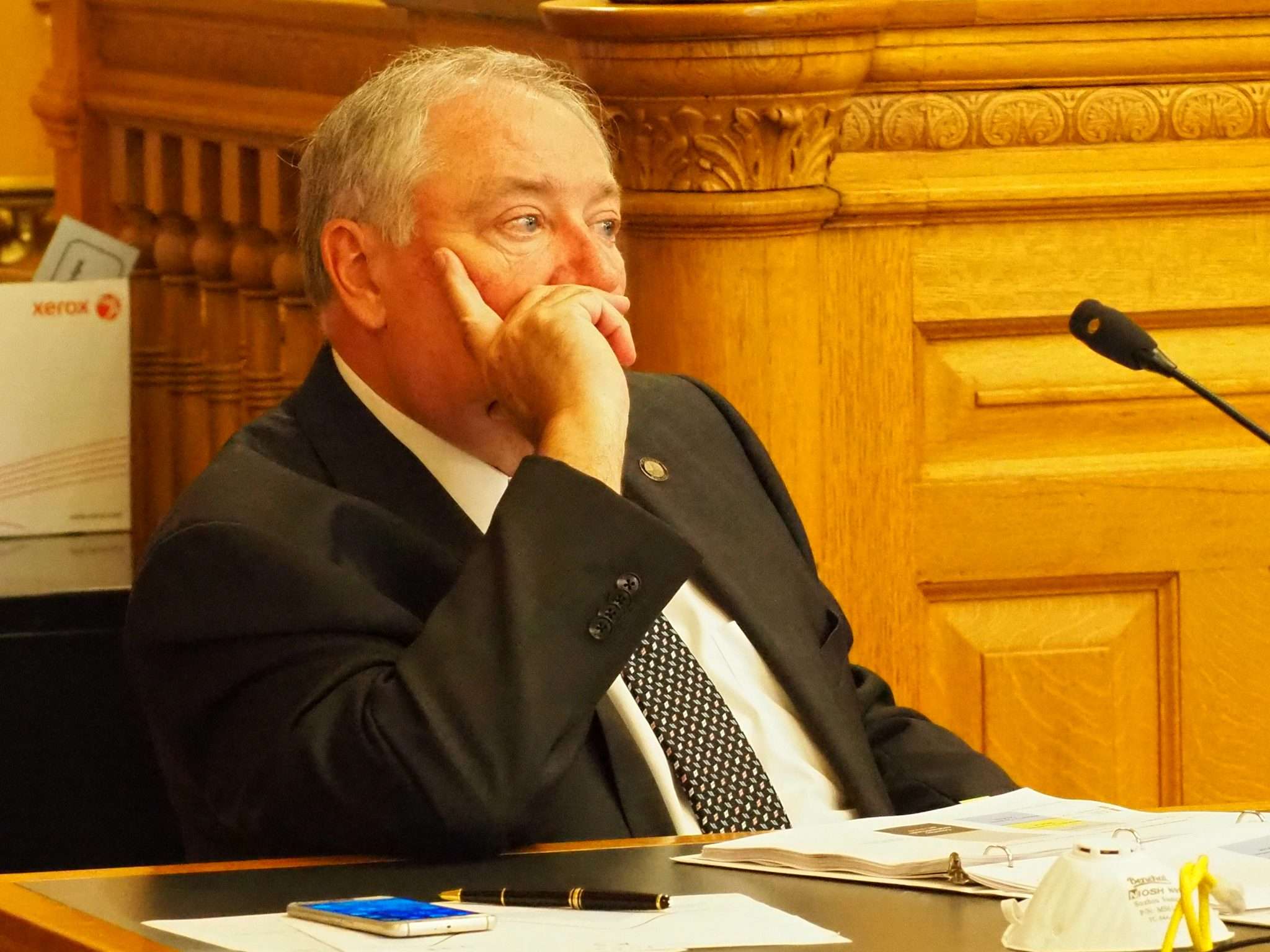
By TIM CARPENTER
Kansas Reflector
TOPEKA — Gov. Laura Kelly and legislators on the State Finance Council unanimously voted Wednesday to earmark $254 million in federal COVID-19 aid for investment in public health, economic development and education initiatives to help the state deal with the pandemic.
The money was drawn from $1.2 billion allocated by Congress to Kansas for coronavirus response and recovery initiatives. An initial $400 million was previously appropriated by the State Finance Council to the 105 counties based on a formula related to population density and COVID-19 infection rates. State officials are facing a Dec. 30 deadline to spend the federal money or return it to the treasury.
“There is some urgency to get these spending levels approved,” Kelly said.
Several Republicans on the State Finance Council objected to elements of this second-phase proposal offered by the Kelly administration. They complained there was too little time to evaluate the financial strategy and not enough detail on expenditures to fairly evaluate a plan that was designed to push $314 million into the state’s economy as quickly as possible.
“I know we can do better than this in helping us make decisions,” said House Speaker Ron Ryckman, R-Olathe. “It’s frustrating.”
However, Senate Majority Leader Jim Denning, R-Overland Park, said the broad question of spending the $254 million for economic development, education and public health, and $60 million more on broadband improvements, should be endorsed by the council promptly so administration officials could expedite transfer of cash to businesses and organizations in desperate need of relief.
The State Finance Council concluded the debate by voting to devote $100 million to public health priorities, including $38 million for nursing homes, $20 million for state laboratory and contact tracing work, $12.5 million for community health facilities and $12.5 million for mental health grants.
The education components provide $55 million to public universities, $9.4 million to public community and technical colleges and $10 million for early childhood programs. In addition, the council agreed to authorize development of grant programs to offer $61 million to small businesses, $9 million to food producers and $8.1 million for information technology training and job placement.
House Majority Leader Dan Hawkins, R-Wichita, argued persuasively to delay action on a recommendation to set aside $60 million for upgrade of broadband services across the state. He said a joint House and Senate budget committee should be given the opportunity Monday to vet the economic development investments in internet access before a vote of the State Finance Council.
“This is a huge piece,” said Rep. Troy Waymaster, a Bunker Hill Republican and chairman of the House budget committee. “Who are we going to partner with? I’m still not seeing a plan.”
Tim Carpenter has reported on Kansas for 35 years. He covered the Capitol for 16 years at the Topeka Capital-Journal and previously worked for the Lawrence Journal-World and United Press International.





